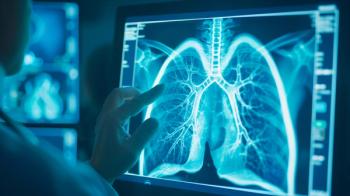
- ONCOLOGY Vol 20 No 1
- Volume 20
- Issue 1
Commentary (Baile/Parker)-Patient-Physician Communication in Oncology: What Does the Evidence Show?
We are delighted to reviewthe article by Dr. TonyBack on communicationwith cancer patients. We applaud hiseffort to provide recommendations forenhanced communication with patientsand families based on findings fromthe literature. We agree that using thecancer trajectory to identify key communicationtasks provides a useful heuristicmodel because, by matchingcommunication tasks to "high-stakes"clinical encounters, this approach intuitivelyappeals to practicing clinicians.As clearly described by Dr. Back, thevast majority of recommendations forcommunication among oncologist, patient,and family are not derived fromevidence-based research. This underscoresthe importance of conductingadditional research to use as a basis forguiding clinicians in how to handlethese challenging communication tasks.
We are delighted to review the article by Dr. Tony Back on communication with cancer patients. We applaud his effort to provide recommendations for enhanced communication with patients and families based on findings from the literature. We agree that using the cancer trajectory to identify key communication tasks provides a useful heuristic model because, by matching communication tasks to "high-stakes" clinical encounters, this approach intuitively appeals to practicing clinicians. As clearly described by Dr. Back, the vast majority of recommendations for communication among oncologist, patient, and family are not derived from evidence-based research. This underscores the importance of conducting additional research to use as a basis for guiding clinicians in how to handle these challenging communication tasks.
Available Evidence
One area of research for which there seems to be more evidence is in identifying patients' information needs and how best to give information to patients. These studies have shown that patients generally want a great deal of information about their disease and that they are able to identify clear preferences for one type of message delivery over another.[1-3]
The existing research on educational interventions suggests that it is possible to teach communication skills and that these skills can be transferred to the clinic and bedside with sufficient practice.[4,5] In this regard, we find Dr. Back's recommendations for specific behaviors (eg, ask patients what type of information and level of detail they would like to have) and for what not to do (eg, avoid stating that "there is nothing more that can be done") to be very useful and practical. We would like to also bring up the importance of very basic skills such as asking openended questions, effective listening, and allowing patients to express feelings. By the nature of this review, these skills are not covered extensively, but there is some evidence in the literature as to their impact.[6]
Emotional Distress
Dr. Back's discussion of emotional distress touches on several issues. One is the normal emotion that occurs in patients in response to, for example, hearing bad news. Responding to patient sadness or anxiety in these situations is a core skill addressed in most communication skills training programs. The detection of specific patient concerns such as side effects of treatment or family problems and their associated distress, however, may be of a second order of difficulty and not as easily mastered. The literature suggests that this task may be assisted by the use of screening instruments for clinical depression or anxiety disorders as well as distress-detection instruments.[7]
Conclusions
The dearth of empirically based data to guide teaching and clinical communication skills raises important issues about the use of current clinical guidelines to guide our teaching and practice of communication skills. The literature on interpersonal psychology, the sociology of illness, and the role of the physician as healer argues for kindness toward and respect for the medically ill, recognizes the power inherent in the position of the doctor, and acknowledges the ethical responsibilities toward patients and families.[8,9] This body of knowledge plays an important role in current "best practice" recommendations[10] for using and teaching key interpersonal and communication skills in oncology. Finding ways to empirically evaluate these recommendations remains a significant challenge that, heretofore, has not been taken up to a great extent by researchers in communication skills.
Disclosures:
The authors have no significant financial interest or other relationship with the manufacturers of any products or providers of any service mentioned in this article.
References:
1. Jenkins V, Fallowfield L, Saul J: Information needs of patients with cancer: Results from a large study in UK cancer centres. Br J Cancer 84:48-51, 2001.
2. Degner LF, Kristjanson LJ, Bowman D, et al: Information needs and decisional preferences in women with breast cancer. JAMA 277:1485-1492, 1997.
3. Parker P, Baile WF, deMoor C, et al: Breaking bad news. Patient preferences for communication. J Clin Oncol 19(7):2049-2056, 2001.
4. Fallowfield L, Jenkins V, Farewell V, et al: Enduring impact of communication skills training: Results of a 12-month follow-up. Br J Cancer 89:1445-1449, 2003.
5. Razavi D, Merckaert I, Marchal S, et al: How to optimize physicians' communication skills in cancer care: Results of a randomized study assessing the usefulness of posttraining consolidation workshops. J Clin Oncol 21:3141- 3149, 2003.
6. Beck RS, Daughtridge R, Sloane PD: Patient communication in the primary care office: A systemic review. J Am Board Fam Pract 15:25-38, 2002.
7. Jacobsen PB, Donovan KA, Trask PC, et al: Screening for psychologic distress in ambulatory cancer patients: A multicenter evaluation of the distress thermometer. Cancer 103:1494- 1502, 2005.
8. Engel GL: The need for a new medical model: A challenge for biomedicine. Science 196:129-136, 1977.
9. Meier DE, Back AL, Morrison RS: The inner life of physicians and care of the seriously ill. JAMA 286:3007-3014, 2001.
10. Fryer-Edwards K, Arnold R, Back A, et al: Oncotalk: Improving oncologists' communication skills. Available at http:// depts.washington.edu/oncotalk/modules.html. Accessed December 5, 2005.
Articles in this issue
about 20 years ago
Twenty Years of Systemic Therapy for Breast Cancerabout 20 years ago
Commentary (Moller): Surgical Staging in Endometrial Cancerabout 20 years ago
Commentary (Hudis): Twenty Years of Systemic Therapy for Breast Cancerabout 20 years ago
Gynecologic Manifestations of Hereditary Nonpolyposis Colorectal Cancerabout 20 years ago
Commentary (Hernandez): Surgical Staging in Endometrial Cancerabout 20 years ago
Surgical Staging in Endometrial CancerNewsletter
Stay up to date on recent advances in the multidisciplinary approach to cancer.
Related Content




MCL Workshop Proves Essential for Moving the Needle Forward in Research











































